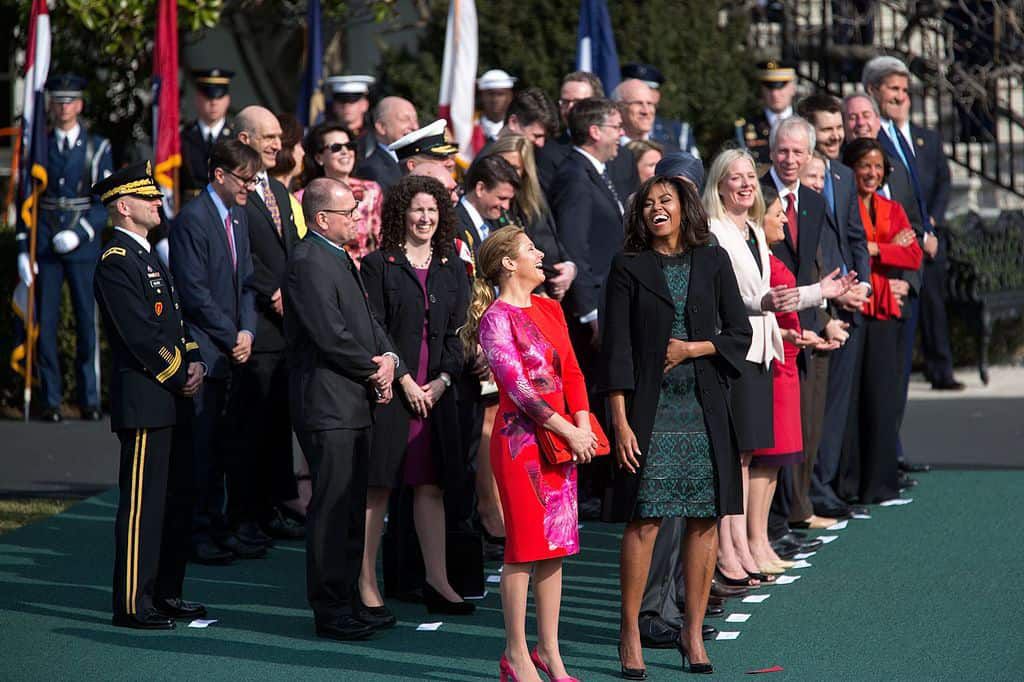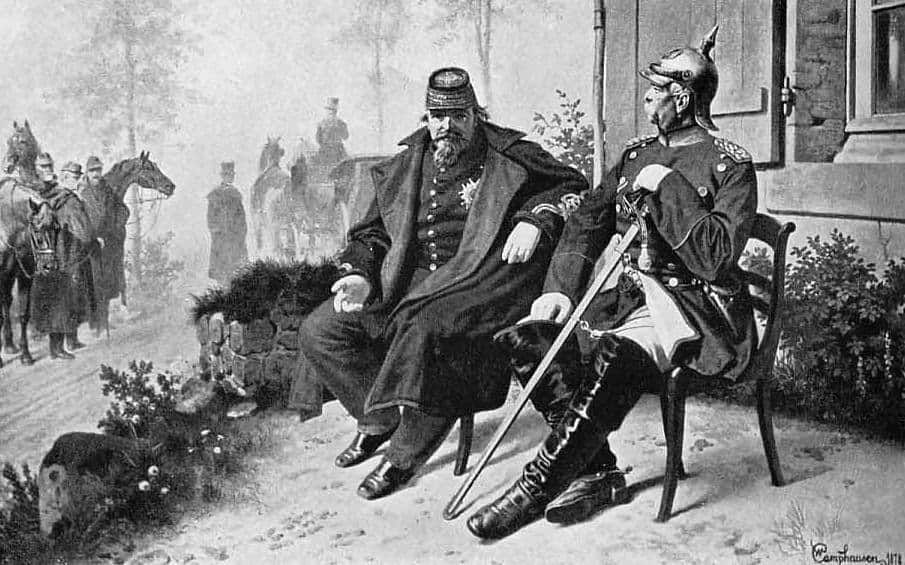
Love vs. the drive for power
The loving mind recognizes the value and beauty in every living thing. It seeks to preserve and protect the world around us, including our environment. A loving person is incapable of committing acts of violence, betrayal, theft or other social or ethical crimes, or of exploiting other humans, animals and natural resources out of greed and selfishness. The loving individual suffers with any destruction but rejoices at every act of kindness.
World affairs are often managed by politicians and businesspeople whose prevailing impulses aren’t loving. Politics and economic wealth appeal to a very strong human impulse, the drive for power. The philosopher Friedrich Nietzsche coined the term Wille zur Macht (will to power) to describe what he regarded as a central human drive to reach the highest attainable position in a group. Nietzsche believed the will to power to be the main force underlying human behavior.
From an evolutionary standpoint, it’s intuitive that the drive for power should be a strong impulse, because a dominant position in a group allows a greater probability of successful reproduction—both in terms of the number of progeny and the probability that offspring will survive to reproductive age.
A powerful person can provide for more sexual partners and more children. He or she also is better positioned to protect himself or herself from antagonists and to support descendants. Accordingly, striving for power, wealth and comfort is a strong trait in humans, one that frequently trumps considerations of love in political and business decisions.
Following the will to power requires self-serving impulses to prevail, and these often conflict with impulses to serve others. Even for those who manage to reach a position of power without compromising their integrity, the desire to remain in power may clash strongly with their intentions to control egotistic impulses. The disastrous result for world affairs—and for humanity—is that people who obtain commanding positions are often not driven by a focus on loving.
Conversely, those who prioritize love in their lives are less likely to end up in highly influential roles. They’re more likely to focus on family, community and volunteer work. Furthermore, people who immerse themselves in loving activities are often indifferent to politics, leaving contests for political leadership open to those who are hungry for power.
These dynamics pave the way for governments and important institutions to be headed by egomaniacs driven by the desire for influence and control instead of a genuine aspiration to improve people’s lives. The renowned psychologist Carl G. Jung summarized this pattern: “Where love rules, there is no will to power; and where power predominates, there love is lacking. The one is the shadow of the other.”
Occasionally, we see world leaders who retain a strong focus on loving after rising to positions of great influence. Sadly, these individuals remain exceptional.

The importance of compassionate politics
The economic and political impact of the lack of love in world affairs is difficult to ascertain with any precision, but it’s surely enormous. International politics is fundamentally no different from interactions between individuals. A nation devoted exclusively to advancing its own interests, without any concern for its global neighbours, will earn resentment and opposition from other nations rather than co-operation and goodwill.
Political leadership that’s not guided by love is also likely to foster inequality, hardship and injustice, which in turn may lead to violent conflict. Research suggests that the perception of injustice is among the most important motivations for terrorism. If a country’s polices are perceived by others as threatening their fundamental rights, such as the freedom of religion, they may elicit fervent and violent resistance.
On the other hand, as in interpersonal dealings, if a government’s policies and actions demonstrate care and respect for others, it gains credibility and trust and undermines support for antagonizing, extreme voices. The same applies to citizens who live under an unjust and immoral government. The genuinely caring policies of another nation may weaken the authority of the corrupt government, whereas confrontation and threat only unify opponents and escalate conflict. Importantly, compassionate politics facilitate the building of broad alliances to isolate nations that violate human rights.
Like love, amicable relationships between nations require effort and introspection. If a nation’s leaders don’t try to understand the effect of the nation’s actions on others, it’ll be difficult to have good international relationships. If they make errors of judgment and antagonize other nations (or factions within nations), they must concentrate on restoring others’ trust by acknowledging their mistakes and by displaying consistently honourable behavior.
While such an approach won’t convince all extremists to drop their weapons, it’ll erode the support for extremists and discourage followers from joining an antagonistic group, which is a critical measure for containing extremist movements.
The effects of valuing and trusting others
 Many believe, however, that international leadership requires a show of strength and that it’s naive and dangerous to trust in the goodwill of others. Ultimately, it comes down to our view of human beings. Do we believe people are inherently selfish, greedy and hostile, or that people generally act from good intentions but may sometimes be misguided?
Many believe, however, that international leadership requires a show of strength and that it’s naive and dangerous to trust in the goodwill of others. Ultimately, it comes down to our view of human beings. Do we believe people are inherently selfish, greedy and hostile, or that people generally act from good intentions but may sometimes be misguided?The former attitude has led to worldwide distrust and suspicion, hampering progress in international relationships. An approach of respect and goodwill is more likely to bring peace and co-operation in the long term. Along with numerous devastating wars, world history contains many examples of treaties and agreements between nations. At the heart of diplomacy is the willingness to compromise: to respect another party’s interests and to make concessions. Leaders with a genuine interest in peace and in improving the human condition will choose this path whenever possible.
Before the First World War, for instance, the 19th-century Prussian statesman Otto von Bismarck carefully arranged a balance of power among European nations by crafting a number of alliances. Bismarck is credited with preserving the peace during turbulent times in Europe, as many countries strove for power and influence.
Little more than a decade after Bismarck, however, Europe was careering toward war. The First World War—which the American diplomat and historian George F. Kennan called the “seminal catastrophe” of the 20th century, and which paved the way for the Second World War—is now widely regarded as resulting from failures of leadership and diplomacy. Considerate actions by European leaders could plausibly have prevented the 17 million deaths, as well as the destruction that ravaged the continent.
Winston Churchill believed, as many historians do today, that the Second World War and its 60 million deaths could’ve been prevented if the international community had worked together to contain Hitler.
The fundamental principle of love applies to all human interactions, from the individual to the global scale. It helps to remember that this planet is our home and that we’re all related: we have much more uniting us than separating us. Most people, indeed, are well-meaning and want to live peacefully: avoiding conflict is an evolutionary impulse that promotes survival.
Does this mean all people are good? Certainly, many people all over the world display disrespectful, selfish, greedy behavior at times. We may not be able to change their ways, but we can control our own actions and form alliances among those with common interests. Leading with integrity has always inspired others because it speaks to our strongest intrinsic, evolutionary purpose: that is, to unite our species for the sake of its survival, rather than to divide it.
It’s evident that the human impact on our planet has been disastrous. We’re flooding the Earth with our waste and pollutants, destroying other species with whom we share it. We were given a paradise, but we seem to be doing our best to turn it into hell. It’s easy to assign blame, but it’s difficult for individuals to halt the destruction in which we’re all, to some degree, complicit.
The first step towards effecting change is awareness and recognition of what we're doing to the world. Love requires us to value other lives. We can’t expect love for ourselves while being unloving to others. Loving involves respecting and nurturing life, recognizing the miracle in every being. To have love in our lives requires us to love the world. Exploitation of other humans, animals or our environment may lead to material gain, but it’ll preclude our own happiness.
«RELATED READ» THAT ALL ARE CREATED EQUAL: The painful journey from the ideal to realizing the reality»
image 1: public domain by The White House via Wikimedia Commons; image 2: public domain via Wikimedia Commons
Read the full article
